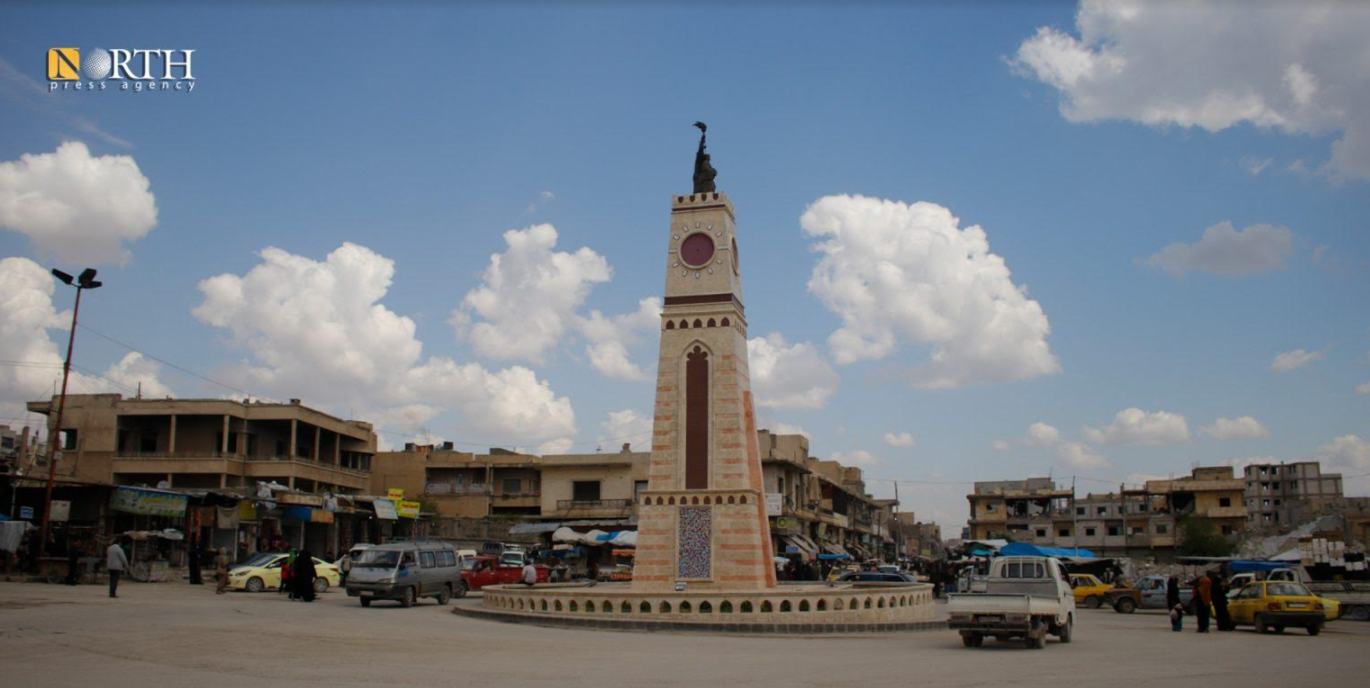PoliticiAns from Syria’s northern city of Raqqa said the settlement process declared by the Syrian government in Raqqa is but an attempt to smash the demands of the Syrian people for political reform.
News outlets close to the Syrian government reported that the government started a settlement process for the people of Sabkha town, 30 km southeast of Raqqa.
Abdurrahman al-Issa, a political figure in Raqqa, said the government applies all methods in order to eradicate the Syrian revolution and their wish for change and reform.
Issa pointed out that every person who participates in the settlement process announced by the government will be involved in the conspiracy against the revolution and the Syrian people and is also a partner in the crimes committed against the people over the last years of conflict.
“The military arsenal of the Syrian government destroyed Syria over a decade of war. How could we reconcile with someone who destroyed our country?’” he told North Press.
He believes that when Damascus announces a settlement process, it disregards UN Resolution 2254 and tries to elude it.
Read Also: Damascus’ Reconciliation Come After Failure of War, Future Syria Party
“The Syrian government is trying to regain international legitimacy which it had lost when it quelled peaceful public protests that erupted in 2011.”
In late 2015, the UN adopted Resolution 2254, demanding an immediate ceasefire in Syria, starting political negotiations, and conducting elections within 18 months.
Mowaffaq Ismail, head of Youth Council of the Future Syrian Party, said the situation in Syria is not in need of any reconciliations or settlements, instead a comprehensive dialogue to save what’s left of Syria should be conducted.
“The government is persistent in the ideology of tyranny and humiliation of the Syrians by conducting settlement process which is perceived as a betrayal of the blood of the war victims and of the Syrians as a whole,” he told north Press.
How does the settlement process start?
The option of “settlement agreement” was produced in the Syrian conflict in 2017 when the Syrian government and the opposition factions concluded an agreement stipulated to evacuate fighters of the opposition factions and their families from al-Wa’er neighborhood in Homs city and transfer them to the northern countryside of Homs, plus to settle the status of the people wishing to reconcile with the government and return to live in the Syrian government-held areas.
In March 2018, the settlement agreement moved to Rif Dimashq. Accordingly, fighters of the opposition factions and their families left the Eastern Ghouta in Rif Dimashq and moved to Aleppo and Idleb countryside.
Again, in July 2018, the settlement agreement was announced in Daraa city. The items of the settlement agreement were that the people of Daraa shall hand over heavy weapons and allow state-run institutions and directorates to re-operate in Daraa. In return, the government would release prisoners from Daraa, erase names of the people wanted by the government over political charges and the Syrian government forces would withdraw from the city to their barracks. However, the government implemented none of the items.
In September 2021, on the wake of tensions in Daraa, a Russian-brokered reconciliation was re-introduced to other Syrian governorates such ad Deir-ez-Zor and Raqqa.
In mid-November 2021, the legislative council of Deir-ez-Zor run by the Autonomous Administration of North and East Syria (AANES) issued a decision to sack every employee of its institutions and civil society organizations who conducts a settlement process with the Syrian government.
On January 6th, 2022, Amina Osi, deputy co-chair of the AANES Executive Council, said the Syrian government aims to break down the social fabric in northeast Syria.
This article was edited by The Syrian Observer. The Syrian Observer has not verified the content of this story. Responsibility for the information and views set out in this article lies entirely with the author.


